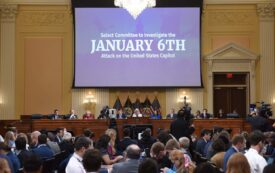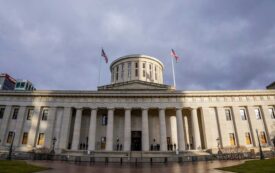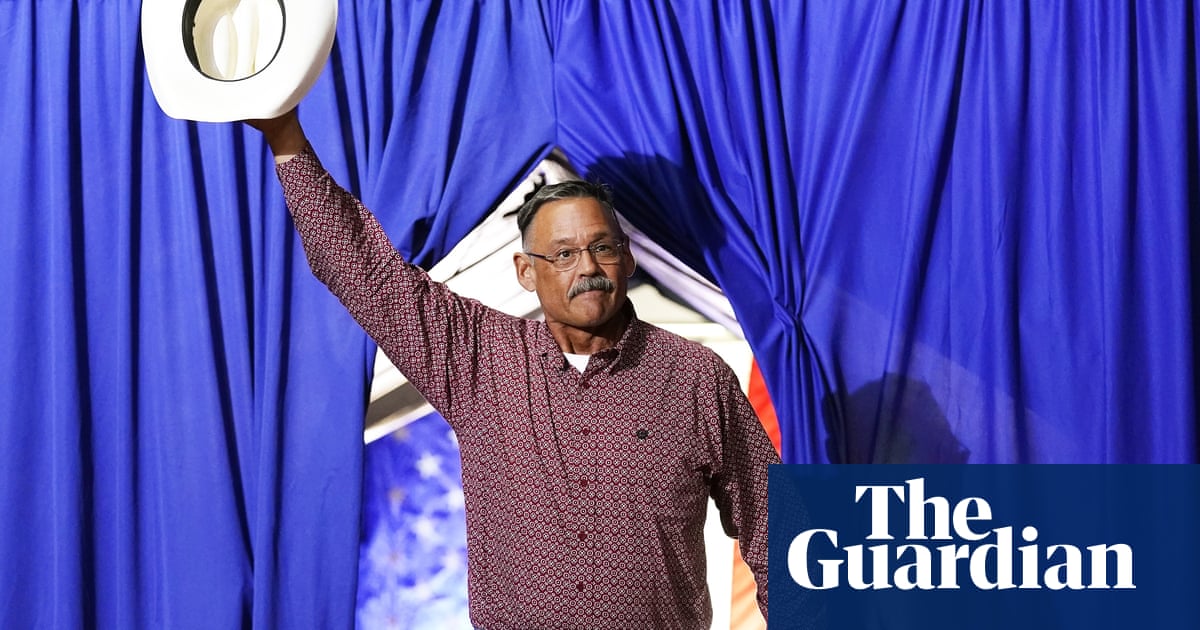Archive for category: #Fascism #Elections #Bonapartism
Daniel Bessner, Ben Burgis

The post The January 6 Hearings Are Not Going to Save Us appeared first on The Nation.
Preventing the next attempt to overturn an election is a bit like playing whack-a-mole. Plug one gap in the nation’s rickety, interlocking system for counting votes—say, by ensuring that a power-hungry vice president cannot unilaterally declare his or her ticket the winner—and another pest seems to materialize immediately.
Congress is confronting this reality as it tries to rewrite a 135-year-old law governing the final, fraught act of certifying the Electoral College results—the very statute that former President Donald Trump used as a pretext to demand that then–Vice President Mike Pence anoint him the victor on January 6, 2021. Last month, a bipartisan group of senators announced, to substantial fanfare, that it had reached an agreement to revise the 1887 Electoral Count Act. But closing off every path to subversion is proving to be a tricky task.
The legislation is modest in scope; its aims are not. The proposal’s authors believe that its enactment is necessary to guarantee that the violent insurrection that occurred last time around does not become a quadrennial affair. “That happened. It was real. It was not a visit from friends back home,” Democratic Senator Joe Manchin of West Virginia, Congress’s most famous centrist and a co-sponsor of the bill, testified Wednesday at a hearing on the measure. “And we have a duty to ensure that it never happens again.”
Election-law experts across both parties agree that the Senate proposal, known as the Electoral Count Reform Act, would resolve legal ambiguities that Trump and his allies tried to exploit before the transfer of power. As written, the bill would clarify that the vice president, regardless of party, has only a ministerial role in presiding over Congress’s certification of the Electoral College vote. The proposal would also make it harder for members of Congress to raise objections to a state’s electors; doing so would require support of at least one-fifth of the members in each chamber, rather than just one in both the House and the Senate, as it stands now. Another provision seeks to head off rogue state legislatures by ensuring that they respect the outcome of their popular vote as determined by the laws that were in place at the time of the election.
[Read: Kamala Harris might have to stop the steal]
The proposed changes “set us on a path to reform that represents an extraordinary bipartisan achievement,” Bob Bauer, a longtime Democratic election lawyer who served as White House counsel in the Obama administration, told the Senate Rules Committee. “The proposals before the committee represent a vast improvement over existing law. There can be no question about that—none whatsoever.”
Actually, there were a few questions. Appearing on the same panel, another Democratic lawyer, Norm Eisen, conceded that the Electoral Count Reform Act marked “a significant step forward” in efforts to thwart another attempt to overturn the presidential election. But he warned that, as written, the proposal “could invite unwelcome manipulation.” Eisen highlighted a pair of provisions that he said could be exploited by governors trying to ignore or outright reject the popular vote in their state.
One would set a six-day window to challenge the certification of an election by a governor. The goal is to ensure that legal disputes are resolved in time for the Electoral College to meet in December and then for Congress to certify the results in January. But, Eisen pointed out, that time frame could actually play to the advantage of a governor who certified the wrong winner rather than the candidate who clearly won his or her state’s election. “It just doesn’t work,” he told the committee.
Another provision Eisen flagged would bar states from declaring a “failed election” while allowing them to change or extend their elections because of “extraordinary and catastrophic events.” The point is to give states some flexibility to alter elections for legitimate reasons, as in the case of a terrorist attack or a natural disaster; the attacks of September 11, 2001, for example, occurred on a pivotal election day as New Yorkers prepared to choose their next mayor. (New York City postponed its primary by two weeks.) The bill, however, doesn’t clearly define what constitutes “extraordinary and catastrophic events.” That, too, presents an opportunity for “mischief” by election-denying state officials, Eisen warned. What if a governor alleged, without evidence, rampant voter fraud and deemed that “an extraordinary event” that warranted a re-vote?
Eisen’s concerns are shared by another prominent Democratic election lawyer, Marc Elias, who successfully fought in court many of the challenges that Trump and other Republicans brought against the 2020 results. Part of their complaint is the bill’s narrow scope: In order to win Republican support for any changes to election law, Democrats had to jettison their much broader dreams of enacting stronger protections for voting rights and minimum federal standards for access to the polls.
But Eisen and Elias are also highlighting a potential flaw with the new proposal that may be impossible for Congress to fully rectify. For instance, the bill seeks to reduce the chances that the vice president, Congress, or a rogue secretary of state will mess around with or overturn election results. In doing so, however, the legislation grants more authority to governors to certify a state’s electors. What if the sitting governor is corrupt? As Eisen was testifying Wednesday, vote counters in Arizona were determining whether Republicans had nominated one of the nation’s most steadfast election conspiracy theorists, Kari Lake, as the state’s next governor. In Pennsylvania, the GOP has already given its nod to a Trump loyalist, Doug Mastriano, who marched to the Capitol on January 6.
The bill’s bipartisan support increases its chances of passage, and during the hearing, lawmakers in both parties seemed open to some revisions. “It’s a good start, but like every important bill, the initial version has some areas that need development,” Eisen, who served as a House counsel for the Democrats during Trump’s first impeachment, told me afterward. Some provisions, he said, “do pose risk if they are not fixed.”
Nine Republicans are already backing the legislation in the Senate, and Minority Leader Mitch McConnell has praised the effort, suggesting that the bill will have enough votes to overcome a filibuster if Democrats fall in line. Each party has reasons to vote for it. Democrats want to prevent Trump and his allies from trying again to overturn a defeat, while Republicans fear a scenario in which Vice President Kamala Harris plays a decisive role when presiding over Congress on January 6, 2025. Senator Shelley Moore Capito of West Virginia, a Republican, said there was “a sense of urgency” to act before the next presidential campaign begins. “My personal feeling is we need to button this up before the end of the year,” she said at the hearing.
Yet among Democrats, there remains some pause, as senators recognize a need to adopt a compromise while lamenting the new bill’s limitations. “The text didn’t exploit itself,” Senator Alex Padilla, a Democrat of California, said at one point during the hearing, referring to the flaws in the 1887 Electoral Count Act. “People did. The former president did. Senators, members of Congress did.”
Congress is fond of loopholes—closing them, opening them, preserving them. And even the strongest defenders of the Electoral Count Reform Act acknowledged that the proposal was not entirely free of them. “No law can prevent all mischief,” Derek Muller, a professor at the University of Iowa, told me. The question lawmakers must answer in the coming months is whether this new attempt to fortify America’s elections stops more mischief than it inspires.

Hungary’s prime minister delivers opening address to American conservatives at CPAC in Texas
Viktor Orbán, the autocratic leader of Hungary, has urged Christian nationalists in Europe and the US to “unite our forces” during a speech to American conservatives in Texas.
The prime minister met the former US president Donald Trump in New Jersey earlier this week and, on Thursday, delivered the opening address at the Conservative Political Action Conference (CPAC) in Dallas, Texas.
Zurie Pope

The post The Religious Right-Wingers Working to Run Ohio appeared first on The Nation.

Breaking up is hard to do, and I am not at all prepared to discard…

Victories underscore the continued political potency of the stolen election myth, with most significant win in Arizona
Candidates who question the 2020 election results won a handful of key primaries on Tuesday, underscoring the continued political potency of the myth of a stolen election in US politics.
The most significant victory was in Arizona, where Mark Finchem, who was endorsed by Donald Trump, easily won the GOP nomination for secretary of state, placing him one step closer to overseeing elections in a key battleground state.
If you think the Supreme Court overturning abortion rights in this country was radical and shocking, you ain’t seen nothing yet. There was a convention you should know about this past weekend in Denver, funded by some of the wealthiest men and foundations in America, that has received altogether too little publicity.
Imagine if most public schools in the country closed and were replaced by for-profit charter and private academies — often racially segregated and only serving families who could afford their tuition — because the Constitution required federal compulsory education laws and federal funding for education (at all levels) to end.
Imagine if the U.S. Constitution required the EPA, FDA, USDA, DOT, Department of Education, and Department of Labor to shut down. All union protections are dead, there are no more federal workplace safety standards, and even child-labor laws are struck down, along with the national minimum wage and the income tax, both individual and corporate.
Imagine that the Constitution makes it illegal for the federal government to protect you from big polluters, big banks, and even big food and pharma — all are free to rip you off or poison you all they want, and your only remedy is in state courts and legislatures, because the Constitution prevents Congress from doing anything about any of it. The federal government can no longer even enforce voting or civil rights laws.
Imagine if Citizens United and its position that political bribery is merely a First Amendment exercise of “free speech” were put into the US Constitution so it can never be overturned by Congress or a future court, meaning that whichever political candidate has the backing of the wealthiest donors pretty much wins every election for the rest of American history.
Imagine, to add injury to insult, that the federal government has shut down Social Security, Medicare, and Medicaid, because all of these programs (along with food stamps, Pell grants, housing supports, and any programs that help the middle class, the less fortunate, or disabled) are “beyond the reach” of what the federal government can do because they’re now unconstitutional.
A few years ago, it would have been a thought experiment; now billionaires and the groups they fund are working to rewrite our Constitution to provide corporations and the rich with more and more protections and benefits while chopping away at anything smelling of “socialism” like Social Security or child labor laws that could tax billionaires or reduce their profits.
This scenario was one possible outcome of the agenda of the “Academy of States” meeting held this past Sunday at the Hyatt Regency at the Denver Convention Center. Republican state legislators from across the country were invited to attend.
If their plan works, they’ll rewrite our Constitution and state governors, the US Congress, and the President will have no say whatsoever in the process. Only state legislatures are necessary, according to Article V of the Constitution, and governors can’t veto their actions.
Numerous states are now so gerrymandered that the majority of their citizens vote for Democrats, giving them Democratic governors (Michigan, Wisconsin, Kentucky, North Carolina, Louisiana, Maine, Pennsylvania) even though one or both of their legislative bodies are still controlled by Republicans.
The Republican-controlled legislatures of these states can join the legislatures of solidly red states to call a constitutional convention — 34 states are needed — to rip open our Constitution and change it as they want. When done, they’ll need 3/4ths of the states to replace our current Constitution and the President, Congress, and state governors will have no say in the process whatsoever.
The Constitution provides for three ways to change or amend itself. The first is that Congress can propose a constitutional amendment, pass it with a supermajority in both houses, and have three-quarters of the states ratify it. This is the way it’s been done for every one of the existing 27 amendments.
The second strategy is done by using Article V of the Constitution and driving the process up from the states. The easiest way to do this is for three-quarters of the states to legislatively approve (with simple majority votes in the legislatures of each state) an amendment, in which case Congress is unnecessary and upon ratification by the 38th state, it becomes a permanent amendment to the Constitution.
While this strategy has never been used, it’s one process many of the good government groups like Move To Amend and Public Citizen are pushing for a “Corporations are not people, and money is not speech” amendment to reverse Citizens United.
The third — and incredibly dangerous — strategy to amend the Constitution is to simply call a “Convention of the States,” again using Article V, and open the entire document itself up to rewriting and tinkering.
This third strategy is the one being used right now, as you’re reading these words, in a very well-funded effort by right-wing oligarchs. If they can pull it off in the states (where it’s cheaper to buy politicians), then Congress, the president and even the courts would have no say over it.
Their goal appears to be to put into the Constitution specific prohibitions against any programs (from Social Security to Medicare to food stamps) that they view as “unconstitutional socialism.”
They’d also permanently enshrine in the Constitution the “right” of corporations and billionaires to own politicians and spend unlimited monies to influence elections and ballot measures. It would effectively turn America into a feudal state owned by the people FDR called the “economic royalists.”
The group leading this charge is called Citizens for Self-Governance, which SourceWatch.org said back in 2017:
“[I]s a right-wing political organization tied to Mark Meckler and Eric O’Keefe that is campaigning for an Article V convention to amend the U.S. Constitution.”
They added:
“CSG director Eric O’Keefe has deep ties to Charles and David Koch and has been a founder and funder of numerous right-wing groups including Wisconsin Club for Growth,” and the CSG, “through its Convention of States project, is pushing for a constitutional convention in order to severely restrict federal power, for example by redefining the Commerce Clause to prohibit Congress from enacting child labor or anti-discrimination laws, or by adding a balanced budget requirement.”
The modern project to turn control of the US government over to the morbidly rich started with Lewis Powell’s infamous Memo in 1971 and gained serious traction through the late 70s and into the 80s of the Reagan Revolution.
Rightwing billionaires and foundations funded and created hundreds of think tanks, policy groups, publications, and radio/TV programs to move the Overton Window toward the far right. Their ultimate goal was to completely reinvent America in their own image with greed as our central cultural and political organizing principle.
At first, they were viewed as the fringe. When David Koch ran for vice president on the Libertarian ticket in 1980, his platform included a whole series of positions that were then merely considered rightwing fever dreams:
“We urge the repeal of federal campaign finance laws, and the immediate abolition of the despotic Federal Election Commission.”
“We favor the abolition of Medicare and Medicaid programs.”
“We oppose any compulsory insurance or tax-supported plan to provide health services, including those which finance abortion services.”
“We also favor the deregulation of the medical insurance industry.”
“We favor the repeal of the fraudulent, virtually bankrupt, and increasingly oppressive Social Security system. Pending that repeal, participation in Social Security should be made voluntary.”
“We propose the abolition of the governmental Postal Service.”
“We oppose all personal and corporate income taxation, including capital gains taxes.”
“We support the eventual repeal of all taxation.”
“As an interim measure, all criminal and civil sanctions against tax evasion should be terminated immediately.”
“We support repeal of all law which impede the ability of any person to find employment, such as minimum wage laws.”
“We advocate the complete separation of education and State. Government schools lead to the indoctrination of children and interfere with the free choice of individuals. Government ownership, operation, regulation, and subsidy of schools and colleges should be ended.”
“We condemn compulsory education laws … and we call for the immediate repeal of such laws.”
“We support the repeal of all taxes on the income or property of private schools, whether profit or non-profit.”
“We support the abolition of the Environmental Protection Agency.”
“We support abolition of the Department of Energy.”
“We call for the dissolution of all government agencies concerned with transportation, including the Department of Transportation.”
“We demand the return of America’s railroad system to private ownership. We call for the privatization of the public roads and national highway system.”
“We specifically oppose laws requiring an individual to buy or use so-called “self-protection” equipment such as safety belts, air bags, or crash helmets.”
“We advocate the abolition of the Federal Aviation Administration.”
“We advocate the abolition of the Food and Drug Administration.”
“We support an end to all subsidies for child-bearing built into our present laws, including all welfare plans and the provision of tax-supported services for children.”
“We oppose all government welfare, relief projects, and ‘aid to the poor’ programs. All these government programs are privacy-invading, paternalistic, demeaning, and inefficient. The proper source of help for such persons is the voluntary efforts of private groups and individuals.”
“We call for the privatization of the inland waterways, and of the distribution system that brings water to industry, agriculture and households.”
“We call for the repeal of the Occupational Safety and Health Act.”
“We call for the abolition of the Consumer Product Safety Commission.”
“We support the repeal of all state usury laws.”
Koch’s ticket drew only a bit more than a million votes, but that era was just the kickoff for the billionaire and corporate campaign to seize control of the Republican Party and, ultimately, America herself.
In the years since then they’ve built a formidable political infrastructure that has a larger budget, more employees, and more offices and locations around the nation than the GOP itself. If the Republican Party is the puppet, these networks of billionaires and the corporations that made them rich are the puppet masters.
And now, like with their 50-year project to overturn Roe v Wade, they’re getting closer by the day to pulling it off. As Wikipedia noted in 2017:
“In December 2013, nearly 100 legislators from 32 states met at Mount Vernon to talk about how to call a convention of states. … In February 2014, U.S. Senator Tom Coburn announced that after his retirement from Congress, he would focus on promoting the Convention of States to state legislatures.
“In December 2015, Marco Rubio endorsed CSG’s efforts to a call an Article V Convention. In January 2016, Texas Governor Greg Abbott called for a Convention of States to restrict the power of the federal government.
“As of 2016, CSG’s application for a Convention of States has been passed in eight states: Georgia, Florida, Alabama, Alaska, Tennessee, Indiana, Oklahoma, and Louisiana.”
Now that they have mobilized thousands of enthusiastic billionaire-supporting conservatives across the nation, with help from one of America’s most widely heard right-wing talk-radio hosts, Wikipedia noted:
“In September 2016, CSG held a simulated convention to propose amendments to the United States Constitution in Williamsburg, Virginia. An assembly of 137 delegates representing every state gathered to conduct a simulated convention.
“The simulated convention passed amendments relating to six topics, including requiring the states to approve any increase in the national debt, imposing term limits, limiting the Commerce Clause to its original meaning [ending minimum wage, federal right-to-unionize, and child-labor laws], limiting the power of federal regulations [aka consumer protections], requiring a supermajority to impose federal taxes and repealing the 16th Amendment [which legalized federal income tax], and giving the states the power to abrogate any federal law, regulation, or executive order.”
Since 2017, when I first wrote about this threat to American democracy with the above citations, the movement has only grown.
Plug “convention of states” into a search engine and the first half-dozen pages that come up exclusively talk in glowing terms about the project. Few are sounding the alarm about this effort to reinvent America from the top down (the Constitution) and the bottom up (state legislatures).
Since then they’ve been rehearsing the project every year, training Republican state legislators, and funding PR efforts and talk radio hosts to bring their new far-right Constitution into being.
This isn’t the first time the billionaire class has tried to seize control of America, although the last time they made a serious effort they were stopped in their tracks by President Franklin D. Roosevelt and his Vice President Henry Wallace.
On April 9, 1944, at the height of the war against fascist Germany and Japan, the New York Times published an op-ed by Vice President Henry Wallace discussing explicitly this issue of very wealthy people setting out to take over our government.
Wallace spoke directly to the danger of multimillionaire and corporate power, defining right-wing industrialists as people “who in case of conflict put money and power ahead of human beings.”
He added, “in their search for money and power [they] are ruthless and deceitful. … They… follow power and the dollar wherever they may lead.”
In his strongest indictment of that day’s equivalent of today’s billionaire class, Wallace wrote:
“They claim to be super-patriots, but they would destroy every liberty guaranteed by the Constitution. They demand free enterprise, but are the spokesmen for monopoly and vested interest. Their final objective toward which all their deceit is directed is to capture political power so that, using the power of the state and the power of the market simultaneously, they may keep the common man in eternal subjection.”
As Wallace’s president, Franklin D. Roosevelt said when accepting his party’s re-nomination in 1936 in Philadelphia:
“[O]ut of this modern civilization, economic royalists [have] carved new dynasties…. It was natural and perhaps human that the privileged princes of these new economic dynasties, thirsting for power, reached out for control over government itself. They created a new despotism and wrapped it in the robes of legal sanction.”
We stand at a time similar to what Roosevelt and Wallace confronted in their battles with the morbidly rich during the Great Depression and World War II.
This time, however, the Supreme Court (Citizens United) has given American billionaires the power to spend unlimited amounts of money to own politicians and demand behavior from them so outrageous that they’d even lie on live TV and deny science itself.
The billionaire right’s behavior today eerily parallels the day in 1936 when Roosevelt said, “In vain they seek to hide behind the flag and the Constitution. In their blindness they forget what the flag and the Constitution stand for.”
President Roosevelt and Vice President Wallace’s warnings have come full circle. It’s critical that we call out these economic royalists for what they’re doing, and not let them and their minions rewrite our Constitution.